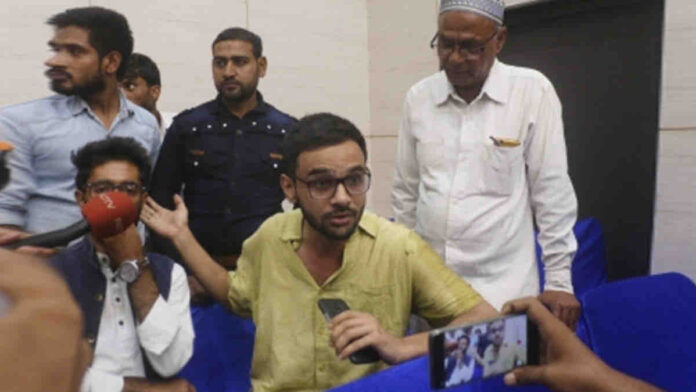The Delhi High Court has scheduled a hearing for October 7 on the bail plea of Umar Khalid, the former Jawaharlal Nehru University (JNU) student, in connection with his alleged role in the February 2020 communal riots in Delhi. The case against Khalid is under the stringent Unlawful Activities (Prevention) Act (UAPA), which addresses acts of terrorism.
Justice Suresh Kumar Kait, who heads the bench, also set the same date for hearing the bail applications of Sharjeel Imam, a student activist; Khalid Saifi, the founder of ‘United Against Hate’; and other co-accused in the case. This grouping highlights the ongoing judicial processes involving multiple figures linked to the violent unrest that coincided with protests against the Citizenship Amendment Act (CAA) and the National Register of Citizens (NRC).
During the session, senior counsel for Umar Khalid informed the court that the Delhi Police had not yet responded to the bail petition, which had been issued a notice on July 24. Subsequently, the bench, which includes Justice Girish Kathpalia, directed all parties involved to file their written submissions within the next two weeks.
Khalid, who was arrested in September 2020, challenges a trial court’s decision to deny him bail. According to the allegations, Khalid, Imam, and others were the “masterminds” behind the riots, which resulted in 53 deaths and injuries to over 700 people.
Previously, on May 28, the trial court reaffirmed its decision to deny Khalid regular bail, noting that its prior order, which dismissed his initial bail plea, had attained finality. This stance was supported by the High Court on October 18, 2022, when it upheld the dismissal of Khalid’s first bail plea, agreeing with the police’s claim that the allegations against him seemed prima facie true.
The court observed that the anti-CAA protests had transformed into violent riots, which appeared to be orchestrated at meetings alleged to involve Khalid, indicating his active participation.
Sharjeel Imam, similarly challenged an April 11, 2022, trial court order that denied him bail. The Delhi Police have opposed Imam’s release, citing his alleged efforts to mobilize people from the minority community and propagate disruptive actions coinciding with the visit of then US President Donald Trump.




